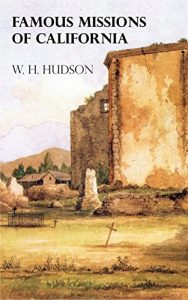On the 1st of July, 1769 a day forever memorable in the annals of California—a small party of men, worn out by the fatigues and hardships of their long and perilous journey from San Fernandez de Villicata, came in sight of the beautiful Bay of San Diego. They formed the last division of a tripartite expedition which had for its object the political and spiritual conquest of the great Northwest coast of the Pacific and among their number were Gaspar de Portola, the colonial governor and military commander of the enterprise and Father Junipero Serra, with whose name and achievements the early history of California is indissolubly bound up.
This expedition was the outcome of a determination on the part of Spain to occupy and settle the upper of its California provinces, or Alta California, as it was then called, and thus effectively prevent the more than possible encroachments of the Russians and the English. Fully alive to the necessity of immediate and decisive action, Carlos I. had sent Jose de Galvez out to New Spain, giving him at once large powers as visitador general of the provinces, and special instructions to establish military posts at San Diego and Monterey. Galvez was a man of remarkable zeal, energy, and organizing ability, and after the manner of his age and church he regarded his undertaking as equally important from the religious and from the political side. The twofold purpose of his expedition was, as he himself stated it, "to establish the Catholic faith among a numerous heathen people, submerged in the obscure darkness of paganism, and to extend the dominion of the King, our Lord, and protect this peninsula from the ambitious views of foreign nations." From the first it was his intention that the Cross and the flag of Spain should be carried side by side in the task of dominating and colonizing the new country. Having, therefore, gathered his forces together at Santa Ana, near La Paz, he sent thence to Loreto, inviting Junipero Serra, the recently appointed President of the California Missions, to visit him in his camp. Loreto was a hundred leagues distant; but this was no obstacle to the religious enthusiast, whose lifelong dream it had been to bear the faith far and wide among the barbarian peoples of the Spanish world. He hastened to La Paz, and in the course of a long interview with Galvez not only promised his hearty co-operation, but also gave great help in the arrangement of the preliminary details of the expedition...
This expedition was the outcome of a determination on the part of Spain to occupy and settle the upper of its California provinces, or Alta California, as it was then called, and thus effectively prevent the more than possible encroachments of the Russians and the English. Fully alive to the necessity of immediate and decisive action, Carlos I. had sent Jose de Galvez out to New Spain, giving him at once large powers as visitador general of the provinces, and special instructions to establish military posts at San Diego and Monterey. Galvez was a man of remarkable zeal, energy, and organizing ability, and after the manner of his age and church he regarded his undertaking as equally important from the religious and from the political side. The twofold purpose of his expedition was, as he himself stated it, "to establish the Catholic faith among a numerous heathen people, submerged in the obscure darkness of paganism, and to extend the dominion of the King, our Lord, and protect this peninsula from the ambitious views of foreign nations." From the first it was his intention that the Cross and the flag of Spain should be carried side by side in the task of dominating and colonizing the new country. Having, therefore, gathered his forces together at Santa Ana, near La Paz, he sent thence to Loreto, inviting Junipero Serra, the recently appointed President of the California Missions, to visit him in his camp. Loreto was a hundred leagues distant; but this was no obstacle to the religious enthusiast, whose lifelong dream it had been to bear the faith far and wide among the barbarian peoples of the Spanish world. He hastened to La Paz, and in the course of a long interview with Galvez not only promised his hearty co-operation, but also gave great help in the arrangement of the preliminary details of the expedition...






